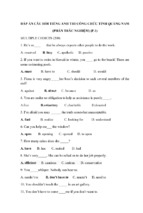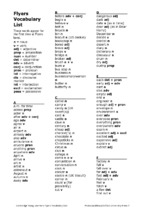Dictionary of
Human Resources
and Personnel
Management
Specialist dictionaries
Dictionary of Accounting
0 7475 6991 6
Dictionary of Aviation
0 7475 7219 4
Dictionary of Banking and Finance
0 7136 7739 2
Dictionary of Business
0 7136 7913 2
Dictionary of Computing
0 7475 6622 4
Dictionary of Economics
0 7475 6632 1
Dictionary of Environment and Ecology
0 7475 7201 1
Dictionary of ICT
0 7475 6990 8
Dictionary of Information and Library Management
0 7136 7591 8
Dictionary of Law
0 7475 6636 4
Dictionary of Leisure, Travel and Tourism
0 7475 7222 4
Dictionary of Marketing
0 7475 6621 6
Dictionary of Media Studies
0 7136 7593 4
Dictionary of Medical Terms
0 7136 7603 5
Dictionary of Nursing
0 7475 6634 8
Dictionary of Politics and Government
0 7475 7220 8
Dictionary of Publishing and Printing
0 7136 7589 6
Dictionary of Science and Technology
0 7475 6620 8
Easier English™ titles
Easier English Basic Dictionary
0 7475 6644 5
Easier English Basic Synonyms
0 7475 6979 7
Easier English Dictionary: Handy Pocket Edition
0 7475 6625 9
Easier English Intermediate Dictionary
0 7475 6989 4
Easier English Student Dictionary
0 7475 6624 0
English Thesaurus for Students
1 9016 5931 3
Check Your English Vocabulary workbooks
Academic English
0 7475 6691 7
Business
0 7475 6626 7
Computing
1 9016 5928 3
Human Resources
0 7475 6997 5
Law
0 7136 7592 6
Leisure, Travel and Tourism
0 7475 6996 7
FCE +
0 7475 6981 9
IELTS
0 7136 7604 3
PET
0 7475 6627 5
TOEFL®
0 7475 6984 3
TOEIC
0 7136 7508 X
Visit our website for full details of all our books: www.acblack.com
Dictionary of
Human Resources
and Personnel
Management
third edition
A & C Black 앫 London
www.acblack.com
Third edition publshed 2003, reprinted 2006
Second edition 1997, reprinted 1998
First edition published in 1988 as Dictionary of Personnel Management
A & C Black Publishers Ltd
38 Soho Square, London W1D 3HB
© A. Ivanovic MBA & P. H. Collin 1988, 1997
© A & C Black Publishers Ltd 2006
All rights reserved. No part of this publication may be reproduced
in any form or by any means without the permission of the publishers
A CIP record for this book is available from the British Library
eISBN-13: 978-1-4081-0217-6
Text Production and Proofreading
Heather Bateman, Katy McAdam
A & C Black uses paper produced with elemental chlorine-free pulp,
harvested from managed sustainable forests.
Text typeset by A & C Black
Printed in Italy by Legoprint
Preface
This dictionary provides the user with a comprehensive vocabulary of terms
used in human resource management. It covers all aspects of the subject
including recruitment and selection, appraisals, payment systems, dismissals
and other aspects of industrial relations.
The main words are explained in simple English, and pronunciations are
given in the International Phonetic Alphabet. Where appropriate, examples
are included to show how the words are used in context. Quotations are also
given from various magazines and newspapers, which give an idea of how
the terms are used in real life. The supplement at the back of the book gives
various documents which provide useful guidelines as to how a company’s
own documents can be constructed.
We are grateful to the following for their valuable comments on the text:
Dena Michelli, Michael Furlong, Yvonne Quinn, Stephen Curtis, Margaret
Jull Costa, Georgia Hole, Dinah Jackson and Sandra Anderson.
Pronunciation Guide
The following symbols have been used to show the pronunciation of the main
words in the dictionary.
Stress is indicated by a main stress mark ( � ) and a secondary stress mark ( � ). Note
that these are only guides, as the stress of the word changes according to its position
in the sentence.
Vowels
�
ɑ�
ɒ
a
aυ
aə
aυə
ɔ�
ɔ
e
eə
e
eυ
��
i�
i
ə
ə
u
u�
υ
υə
'
back
harm
stop
type
how
hire
hour
course
annoy
head
fair
make
go
word
keep
happy
about
fit
near
annual
pool
book
tour
shut
Consonants
b
d
ð
d�
f
�
h
j
k
l
m
n
ŋ
p
r
s
ʃ
t
tʃ
θ
v
w
x
�
z
buck
dead
other
jump
fare
gold
head
yellow
cab
leave
mix
nil
sing
print
rest
save
shop
take
change
theft
value
work
loch
measure
zone
AA
1
acceptance bonus
A
AA /�e �e/ same as attendance
allowance
absenteeism. 쑗 Absenteeism is high in
the week before Christmas.
ability /ə�blti/ noun the capacity or
power to do something 쑗 Ability to sell
is essential for the job.
‘…but the reforms still hadn’t fundamentally
changed conditions on the shop floor:
absenteeism was as high as 20% on some days’
[Business Week]
ability test /ə�blti test/ noun same
rate
/
�bsən�ti�z(ə)m ret/ noun the percentage of
the workforce which is away from work
with no good excuse 쑗 The rate of absenteeism or the absenteeism rate always increases in fine weather.
ACAS /�ek�s/ abbr Advisory, Conciliation and Arbitration Service
accept /ək�sept/ verb 1. to take something which is being offered 왍 to accept
delivery of a shipment to take goods
into the warehouse officially when they
are delivered 2. to say ‘yes’ or to agree
to something 쑗 She accepted the offer of
a job in Australia. 쑗 He accepted £2000
in lieu of notice.
acceptable /ək�septəb(ə)l/ adjective
which can be accepted 쑗 Both parties
found the offer acceptable. 쑗 The terms
of the contract of employment are not
acceptable to the candidate.
acceptance /ək�septəns/ noun 왍 acceptance of an offer the act of agreeing
to an offer 왍 to give an offer a conditional acceptance to accept an offer
provided that specific things happen or
that specific terms apply 왍 we have
their letter of acceptance we have received a letter from them accepting the
offer
acceptance bonus /ək
septəns
�bəυnəs/ noun a bonus paid to a new
employee when they agree to join an organisation (NOTE: an acceptance bonus
as aptitude test
able /�eb(ə)l/ adjective capable or
working well 쑗 She’s a very able
manager.
able-bodied /
eb(ə)l �bɒdid/ adjec-
tive with no physical handicap 쑗 The
work is strenuous and only suitable for
the young and able-bodied.
abroad /ə�brɔ�d/ adverb to or in another country 쑗 The consignment of
cars was shipped abroad last week. 쑗
The chairman is abroad on business. 쑗
He worked abroad for ten years. 쑗 Half
of our profit comes from sales abroad.
absence /��bsəns/ noun the fact of
not being at work or at a meeting 왍 in
the absence of when someone is not
there 쑗 In the absence of the chairman,
his deputy took the chair. 왍 unauthorised absence from work, absence
without leave being away from work
without permission and without a good
reason
absent /��bsənt/ adjective not at
work or not at a meeting 쑗 He was absent owing to illness. 쑗 Ten of the workers are absent with flu. 쑗 The chairman
is absent in Holland on business.
absentee /
�bsən�ti�/ noun a person
who is absent or an employee who stays
away from work for no good reason
/
�bs(ə)n�ti�z(ə)m/
noun the practice of staying away from
work for no good reason 쑗 Low productivity is largely due to the high level of
absenteeism
absenteeism
can be a feature of a golden hello and
is designed both to attract and to retain
staff)
acceptance sampling
2
acceptance sampling /ək�septəns
sɑ�mplŋ/ noun the process of testing a
small sample of a batch to see if the
whole batch is good enough to be
accepted
access /��kses/ noun 왍 to have access to something to be able to obtain
or reach something 쑗 She has access to
large amounts of venture capital. 쐽 verb
to call up data which is stored in a computer 쑗 She accessed the address file on
the computer.
accession /ək�seʃ(ə)n/ noun the act
of joining an organisation
accession rate /ək�seʃ(ə)n ret/
noun 1. the percentage of employees in
an organisation who have joined it during a particular period of time 2. a rate
of pay for employees when first hired 쑗
After the first year, pay went up considerably despite the low accession rate. 쑗
The accession rate depends on whether
the entrants are skilled or unskilled.
access time /��kses tam/ noun the
time taken by a computer to find data
stored in it
accident /��ksd(ə)nt/ noun something unpleasant which can be caused
by carelessness or which happens by
chance such as a plane crash
COMMENT: Fatal accidents and accidents
which cause major injuries or which prevent an employee from working for more
than three days must be reported to the
Health and Safety Executive.
accidental /
�ks�dent(ə)l/ adjective
happening by chance, not done intentionally 쑗 accidental destruction of the
computer files
accident book /��ksd(ə)nt bυk/
noun a book in which details of accidents at work are noted down
accident
frequency
rate
/
�ksd(ə)nt �fri�kwənsi ret/ noun the
number of accidents involving injury or
death during a specified number of
man-hours 쑗 The accident frequency
rate has risen since the new machinery
was installed.
accident prevention /
�ksd(ə)nt
pr�venʃən/ noun measures taken to
prevent accidents
account
accident-prone
worker
/
�ksd(ə)nt prəυn �w��kə/ noun a
worker who is more likely to have accidents than other workers
accident report /��ksd(ə)nt r
pɔ�t/ noun a report of an accident
which has taken place at work
accommodate /ə�kɒmədet/ verb to
provide someone with a place to live in
쑗 The company accommodates its employees near their workplace.
accommodation /ə
kɒmə�deʃ(ə)n/
noun 1. money lent for a short time 2. a
place to stay temporarily or live in 쑗
Visitors have difficulty in finding hotel
accommodation during the summer.
‘…any non-resident private landlord can let
furnished or unfurnished accommodation to a
tenant’ [Times]
‘…the airline providing roomy accommodations
at below-average fares’ [Dun’s Business Month]
address /ə
kɒmə�deʃ(ə)n ə
dres/ noun an address used for receiving messages but
which is not the real address of the
company
accordance /ə�kɔ�dns/ noun 왍 in accordance with in agreement with, according to, as someone says or writes 쑗
In accordance with your instructions we
have deposited the money in your current account. 쑗 I am submitting the
claim for damages in accordance with
the advice of our legal advisers.
accordingly /ə�kɔ�dŋli/ adverb in
agreement with what has been decided
쑗 We have received your letter and have
altered the contract accordingly.
according to /ə�kɔ�dŋ tu�/ preposition as stated or shown by someone 쑗
The computer was installed according
to the manufacturer’s instructions.
accommodation
‘…the budget targets for employment and
growth are within reach according to the latest
figures’ [Australian Financial Review]
account /ə�kaυnt/ noun 1. a record of
financial transactions over a period of
time, such as money paid, received, borrowed or owed 쑗 Please send me your
account or a detailed or an itemized account. 2. 왍 accounts of a business, a
company’s accounts a detailed record
of a company’s financial affairs 3. a
customer who does a large amount of
accountability
business with a firm and has an account
with it 쑗 Smith Brothers is one of our
largest accounts. 쑗 Our sales people
call on their best accounts twice a
month. 4. 왍 to keep the accounts to
write each sum of money in the account
book 쑗 The bookkeeper’s job is to enter
all the money received in the accounts.
5. notice 왍 to take account of inflation,
to take inflation into account to assume that there will be a specific percentage of inflation when making
calculations 쐽 verb 왍 to account for to
explain and record a money transaction
쑗 to account for a loss or a discrepancy
쑗 The reps have to account for all their
expenses to the sales manager.
accountability
/ə
kaυntə�blti/
noun the fact of being responsible to
someone for something (such as the accountability of directors to the
shareholders)
accountable /ə�kaυntəb(ə)l/ adjective referring to a person who has to explain what has taken place or who is
responsible for something (NOTE: you
are accountable to someone for
something)
accountancy /ə�kaυntənsi/ noun the
work of an accountant 쑗 They are studying accountancy or They are accountancy students. (NOTE: American
English is accounting in this meaning)
accountant /ə�kaυntənt/ noun a per-
son who keeps a company’s accounts 쑗
The chief accountant of a manufacturing group. 쑗 The accountant has shown
a sharp variance in our labour costs.
account director /ə�kaυnt da
rektə/ noun a person who works in an
advertising agency and who oversees
various account managers who are each
responsible for specific clients
account executive /ə�kaυnt
zekjυtv/ noun an employee of an organisation such as a bank, public relations firm, or advertising agency who is
responsible for looking after particular
clients and handling their business with
the organisation
accounting /ə�kaυntŋ/ noun the
work of recording money paid, received, borrowed or owed 쑗 accounting
methods 쑗 accounting procedures 쑗 an
3
accrue
accounting system 쑗 an accounting
machine
‘…applicants will be professionally qualified
and have a degree in Commerce or Accounting’
[Australian Financial Review]
period /ə�kaυntŋ
pəriəd/ noun a period of time at the
end of which the firm’s accounts are
made up
accounts department /ə�kaυnts
d
pɑ�tmənt/ noun a department in a
company which deals with money paid,
received, borrowed or owed
accounts manager /ə�kaυnts
m�nd"ə/ noun the manager of an accounts department
accounts
payable
/ə
kaυnts
�peəb(ə)l/ noun money owed by a
company
accounts receivable /ə
kaυnts r�si�vəb(ə)l/ noun money owed to a
company
accreditation
/ə
kred�teʃ(ə)n/
noun the process of certifying the competence of a person in a certain area 왍
accreditation of union officials official
recognition by a company that certain
employees are representatives of a trade
union and are treated as such by the
company
accounting
accreditation of prior learning
/əkred
teʃ(ə)n əv
praə �l��nŋ/
noun a process that enables people to
obtain formal recognition of qualifications and experience that they have
gained before joining an organisation
(NOTE: accreditation of prior learning
may be used to support the award of a
vocational qualification)
accredited /ə�kredtd/ adjective re-
ferring to an agent who is appointed by
a company to act on its behalf
accrual /ə�kru�əl/ noun a gradual increase by addition 왍 accrual of interest
automatic addition of interest to capital
accrual rate /ə�kru�əl ret/ noun the
rate at which an employee’s pension increases as each year of service is completed, so forming the basis for
calculating their pension
accrue /ə�kru�/ verb 1. to record a financial transaction in accounts when it
takes place, and not when payment is
accurate
made or received 2. to increase and be
due for payment at a later date 쑗 Interest accrues from the beginning of the
month.
accurate /��kjυrət/ adjective correct
쑗 The sales department made an accurate forecast of sales. 쑗 The designers
produced an accurate copy of the plan.
accurately /��kjυrətli/ adverb correctly 쑗 The second quarter’s drop in
sales was accurately forecast by the
computer.
accuse /ə�kju�z/ verb to say that
someone has committed a crime 쑗 She
was accused of stealing from the petty
cash box. 쑗 He was accused of industrial espionage. (NOTE: you accuse
someone of a crime or of doing
something)
achieve /ə�tʃi�v/ verb to succeed in
doing something, to do something successfully 쑗 He has achieved his
long-term training objectives. 쑗 The
company has achieved great success in
the Far East. 쑗 We achieved all our objectives in 2001.
‘…the company expects to move to profits of
FFr 2m next year and achieve equally rapid
growth in following years’ [Financial Times]
achievement /ə�tʃi�vmənt/ noun
success or something that has been
achieved
achievement test /ə�tʃi�vmənt
test/ noun a test designed to measure
the skills which someone is currently
using (as opposed to an aptitude test,
which measures the skills a person
could use in the future) (NOTE: also
called attainment test)
achiever /ə�tʃi�və/ noun a person who
is successful or who tends to achieve his
or her objectives 쑗 It was her reputation
as a high achiever that made us think of
headhunting her.
across-the-board /ə
krɒs ðə �bɔ�d/
adjective applying to everything or
everyone 쑗 an across-the-board price
increase 쑗 an across-the-board wage
increase
act /�kt/ noun a law passed by parliament which must be obeyed by the people 쐽 verb 1. to work 쑗 He has agreed
to act as an agent for an American company. 쑗 The solicitor is acting for us or
4
Action Programme
on our behalf. 왍 to act as someone to
do someone’s job while he is away 쑗
She will act as marketing manager
while Mr Smith is on holiday. 2. to do
something 쑗 The board will have to act
quickly if the company’s losses are going to be reduced. 쑗 The lawyers are
acting on our instructions. 왍 to act on a
letter to do what a letter asks to be done
acting /��ktŋ/ adjective working in
place of someone for a short time 쑗 acting manager 쑗 the Acting Chairman
action /��kʃən/ noun 1. a thing which
has been done 왍 actions short of dismissal ways of disciplining an employee who has committed an offence,
which stop short of dismissing them
(such as demotion, removal of privileges, etc.) 2. 왍 to take industrial action to do something (usually to go on
strike) to show that you are not happy
with conditions at work 3. a case in a
law court where a person or company
sues another person or company 왍 to
take legal action to sue someone 쑗 an
action for libel or a libel action 쑗 an action for damages 쑗 She brought an action for wrongful dismissal against her
former employer.
actionable /��kʃənəb(ə)l/ adjective
referring to writing, speech or an act
which could provide the grounds for
bringing an action against someone 쑗
Was the employer’s treatment of the employee actionable?
action-centred
leadership
/
�kʃən sentəd �li�dəʃp/ noun a
theory of leadership which focuses on
what leaders actually have to do in order
to be effective, rather than on the personal qualities that they need to be good
leaders, and which believes that leadership can be taught (NOTE: ac-
tion-centred leadership is usually
illustrated by three overlapping circles,
which represent the three key activities
undertaken by leaders: achieving the
task, building and maintaining the
team and developing the individual)
action learning /��kʃən
l��nŋ/
noun the process of learning by doing or
participating in an activity
Programme
/��kʃən
prəυ r�m/ noun an EU initiative con-
Action
active
taining various draft directives to implement the Social Charter
active /��ktv/ adjective involving
many transactions or activities 쑗 an active demand for oil shares 쑗 Computer
shares are very active. 쑗 an active day
on the Stock Exchange
active interview /
�ktv �ntəvju�/
noun an interview where the interviewee is encouraged to answer fully
the questions asked (as in an open-end
interview)
active listening /
�ktv �ls(ə)nŋ/
noun a technique which involves not
only listening to the words someone
uses, but also taking into account their
tone of voice, their body language and
other non-verbal signs in order to gain a
fuller understanding of what they are actually communicating
actively /��ktvli/ adverb in a busy
way 쑗 The company is actively recruiting new personnel.
active partner /
�ktv �pɑ�tnə/
noun a partner who works in a company
that is a partnership
activity /�k�tvti/ noun 1. the fact of
being active or busy 쑗 a low level of
business activity 쑗 There was a lot of
activity on the Stock Exchange. 왍
monthly activity report a report by a
department on what has been done during the past month 2. something which
is done 쑗 out-of-work activities
‘…preliminary indications of the level of
business investment and activity during the
March quarter will provide a good picture of
economic
activity
in
the
year’
[Australian Financial Review]
activity chart /�k�tvti tʃɑ�t/ noun
a plan showing work which has been
done so that it can be compared to the
plan of work to be done
activity
sampling
/�k�tvti
sɑ�mplŋ/ noun an observation of tasks
and their performances, carried out at
random intervals 쑗 Activity sampling
was carried out to see how fast the machinists worked.
actuarial analysis /�ktʃu
eəriəl ə�n�ləss/ noun a calculation carried out
by an actuary to assess somebody’s life
expectancy or the degree of risk involved in an insurance proposal
5
additional award
actuary /��ktʃuəri/ noun a person
employed by an insurance company or
other organisation to calculate the risk
involved in an insurance, and therefore
the premiums payable by people taking
out insurance
acute shortage /ə
kju�t �ʃɔ�td"/
noun a very severe shortage for a period
of time
ad /�d/ noun same as advertisement
(informal ) 쑗 We put an ad in the paper.
쑗 She answered an ad in the paper. 쑗
He found his job through an ad in the
paper.
adaptable /ə�d�ptəb(ə)l/ adjective 1.
being able to change working practices
2. being able to change from job to job
adaptation /
�d�p�teʃ(ə)n/ noun
something which has been adapted 쑗
This machine is an adaptation of our
original model.
add /�d/ verb 1. to put figures together
to make a total 쑗 If you add the interest
to the capital you will get quite a large
sum. 쑗 Interest is added monthly. 2. to
put things together to make a large
group 쑗 We are adding to the sales
force. 쑗 They have added two new products to their range. 왍 this all adds to
the company’s costs this makes the
company’s costs higher
adding machine /��dŋ mə
ʃi�n/
noun a machine which adds numbers
addition /ə�dʃ(ə)n/ noun 1. a thing or
person added 쑗 The management has
stopped all additions to the staff. 쑗 We
are exhibiting several additions to our
product line. 쑗 The marketing director
is the latest addition to the board. 2. 왍
in addition to added to, as well as 쑗
There are twelve registered letters to be
sent in addition to this packet. 3. an act
of putting numbers together 쑗 You don’t
need a calculator to do simple addition.
additional /ə�dʃ(ə)nəl/ adjective extra which is added 쑗 additional costs 쑗
They sent us a list of additional charges.
쑗 Some additional clauses were added
to the contract. 쑗 Additional duty will
have to be paid.
additional award /ə
dʃ(ə)nəl ə�wɔ�d/ noun an extra payment ordered
by an industrial tribunal to a dismissed
.
additional voluntary contributions 6
employee if the company refuses to reinstate them. 쏡 special award
additional voluntary contributions /ə
dʃ(ə)nəl
vɒlənt(ə)ri kɒntr-
�bju�ʃ(ə)nz/ plural noun extra payments made voluntarily by an employee
to a pension scheme (on top of the normal contributions, up to a maximum of
15% of gross earnings). Abbr AVCs
address /ə�dres/ noun the details of
number, street and town where an office
is or a person lives 쑗 My business address and phone number are printed on
the card. 쐽 verb 1. to write the details of
an address on an envelope or package 쑗
a letter addressed to the managing director 쑗 an incorrectly addressed package 쑗 Please address your enquiries to
the manager. 2. to speak 쑗 The chairman addressed the meeting.
addressee /
�dre�si�/ noun a person
to whom a letter or package is addressed
addressing machine /ə�dresŋ mə
ʃi�n/ noun a machine which puts addresses on envelopes automatically
add up /
�d �$p/ verb 1. to put several
figures together to make a total 쑗 He
made a mistake in adding up the column
of figures. 왍 the figures do not add up
the total given is not correct 2. to make
sense 쑗 The complaints in the letter just
do not add up.
add up to /
�d �$p tυ/ verb to make a
total of 쑗 The total expenditure adds up
to more than £1,000.
adequate /��dkwət/ adjective large
enough 왍 to operate without adequate
cover to act without being completely
protected by insurance
ad hoc /�d �hɒk/ adjective for this
particular purpose 쑗 They run ad hoc
surveys to test customer reaction when
products are launched. 쑗 Shipping by
airfreight was an ad hoc arrangement
initially.
ad hoc decision /
�d hɒk d�s"(ə)n/ noun a decision taken to solve
a particular problem
adhocracy /�d�hɒkrəsi/ noun management which works by taking
short-term decisions, but fails to make
long-term plans
admin
adjourn /ə�d"��n/ verb to stop a meeting for a period 쑗 The chairman adjourned the meeting until three o’clock.
쑗 The meeting adjourned at midday.
adjournment /ə�d"��nmənt/ noun an
act of adjourning 쑗 He proposed the adjournment of the meeting.
adjudicate /ə�d"u�dket/ verb to
give a judgement between two parties in
law or to decide a legal problem 쑗 to
adjudicate a claim 쑗 to adjudicate in a
dispute 왍 he was adjudicated bankrupt he was declared legally bankrupt
adjudication
/ə
d"u�d�keʃ(ə)n/
noun the act of giving a judgement or of
deciding a legal problem
adjudication officer /ə
d"u�d�keʃ(ə)n
ɒfsə/ noun an official who
decides whether someone is qualified to
receive benefit
adjudication tribunal /ə
d"u�d�keʃ(ə)n tra
bju�n(ə)l/ noun a group
which adjudicates in industrial disputes
adjudicator /ə�d"u�dketə/ noun a
person who gives a decision on a problem 쑗 an adjudicator in an industrial
dispute
adjust /ə�d"$st/ verb to change something to fit new conditions 쑗 Prices are
adjusted for inflation.
‘…inflation-adjusted GNP moved up at a 1.3%
annual rate’ [Fortune]
‘Saudi Arabia will no longer adjust its
production to match short-term supply with
demand’ [Economist]
‘…on a seasonally-adjusted basis, output of
trucks, electric power, steel and paper
decreased’ [Business Week]
adjuster /ə�d"$stə/ noun a person
who calculates losses for an insurance
company
adjustment /ə�d"$stmənt/ noun the
act of adjusting 쑗 to make an adjustment to salaries 쑗 adjustment of prices
to take account of rising costs 쑗 Details
of tax adjustments are set out in the enclosed document. 쑗 an adjustment of
prices to take account of rising costs
adjustor /ə�d"$stə/ noun same as
adjuster
admin /��dmn/ noun 1. the work of
administration, especially paperwork
(informal ) 쑗 All this admin work takes a
lot of my time. 쑗 There is too much
.
administer
7
admin in this job. 쑗 Admin costs seem to
be rising each quarter. 쑗 The admin
people have sent the report back. 2. administration staff or the administration
department 쑗 Admin say they need the
report immediately. 쑗 She did not answer my note but sent it on to admin.
(NOTE: no plural; as a group of people it
can have a plural verb)
administer /əd�mnstə/ verb to or-
ganise, manage or direct the whole of an
organisation or part of one 쑗 She administers a large pension fund. 쑗 It will be
the HR manager’s job to administer the
induction programme.
administration /əd
mn�streʃ(ə)n/
noun 1. the action of organising, controlling or managing a company 쑗 He
has a qualification in business administration. 2. a person or group of people
who manage or direct an organisation 쑗
It is up to the administration to solve the
problem, not the government. 3. the running of a company in receivership by an
administrator appointed by the courts
administration costs /əd
mn�streʃ(ə)n
kɒsts/, administration
expenses /əd
mn�streʃ(ə)n k
spensz/ plural noun the costs of management, not including production, marketing or distribution costs
administrative /əd�mnstrətv/ adjective referring to administration 쑗 administrative details 쑗 administrative
expenses
administrator
/əd�mnstretə/
noun 1. a person who directs the work
of other employees in a business 쑗 After
several years as a college teacher, she
hopes to become an administrator. 2. a
person appointed by a court to manage
the affairs of someone who dies without
leaving a will 3. a person appointed by a
court to administer a company which is
insolvent
admonish /əd�mɒnʃ/ verb to give a
warning or reprimand (formal ) 쑗 The
workers were admonished by the manager for careless work.
adoption leave /ə�dɒpʃən li�v/ noun
time away from work allowed to an employee for dealing with matters relating
to the adoption of a child
.
adventure training
education /
�d$lt edjυ�keʃ(ə)n/ noun education provided for
adults
ad valorem tax /
�d və�lɔ�rem
t�ks/ noun tax calculated according to
the value of the goods taxed
advance /əd�vɑ�ns/ noun 1. money
paid as a loan or as a part of a payment
to be made later 쑗 She asked if she
could have a cash advance. 쑗 We paid
her an advance on account. 쑗 Can I
have an advance of £100 against next
month’s salary? 2. an increase 3. 왍 in
advance early, before something happens 쑗 freight payable in advance 쑗
prices fixed in advance 쐽 adjective
early 쑗 advance booking 쑗 advance
payment 쑗 Advance holiday bookings
are up on last year. 쑗 You must give
seven days’ advance notice of withdrawals from the account. 쐽 verb 1. to
lend 쑗 The bank advanced him
£100,000 against the security of his
house. 2. to increase 쑗 Prices generally
advanced on the stock market. 3. to
make something happen earlier 쑗 The
date of the AGM has been advanced to
May 10th. 쑗 The meeting with the German distributors has been advanced
from 11.00 to 09.30.
advanced course /əd
vɑ�nst �kɔ�s/
noun a course for students who are not
beginners
advancement /əd�vɑ�nsmənt/ noun
promotion 쑗 The only way to get advancement in this company is through
further training. 쑗 The job is attractive
because
of
the
potential
for
advancement.
advantage /əd�vɑ�ntd"/ noun something useful which may help you to be
successful 쑗 Knowledge of two foreign
languages is an advantage. 쑗 There is
no advantage in arriving at the exhibition before it opens. 쑗 Fast typing is an
advantage in a secretary. 왍 to take advantage of something to use something
which helps you
adventure training /əd�ventʃə
trenŋ/, adventure learning /əd�ventʃə
l��nŋ/ noun a type of
training in which employees engage
in group games and physically demanding outdoor activities such as
adult
adverse
8
climbing and abseiling away from
their usual work environment (NOTE:
the aim of adventure training is to
develop skills in leadership, problem-solving, decision-making and interpersonal communication and to
build team spirit)
adverse /��dv��s/ adjective unfavourable 왍 adverse balance of trade a
situation in which a country imports
more than it exports
adverse action /
�dv��s ��kʃən/
noun a decision which has unfavourable
consequences for employees 쑗 The new
bonus system was considered adverse
action by underachievers in the
organisation.
adverse impact /
�dv��s �mp�kt/
noun an undesirable and unexpected result of an action 쑗 Offering bonuses
only for very high productivity rates had
an adverse impact, discouraging rather
than motivating workers.
advert /��dv��t/ noun same as advertisement (informal ) 쑗 to put an advert
in the paper 쑗 to answer an advert in
the paper 쑗 classified adverts 쑗 display
adverts
advertise /��dvətaz/ verb 1. to arrange and pay for publicity designed to
help sell products or services or to find
new employees 쑗 to advertise a vacancy 쑗 to advertise for a secretary 2.
to announce that something is for sale or
that a job is vacant or that a service is
offered 쑗 to advertise a new product
advertisement
/əd�v��tsmənt/
noun a notice which shows that something is for sale, that a service is offered,
that someone wants something or that a
job is vacant
advertisement manager /əd�v��tsmənt
m�nd"ə/ noun the
manager in charge of the advertisement
section of a newspaper
advertiser /��dvətazə/ noun a person or company that advertises 쑗 The
catalogue gives a list of advertisers.
advertising /��dvətazŋ/ noun the
business of announcing that something
is for sale or of trying to persuade customers to buy a product or service 쑗 She
works in advertising or She has a job in
.
Advisory, Conciliation and
advertising. 쑗 Their new advertising
campaign is being launched next week.
쑗 The company has asked an advertising agent to prepare a presentation. 왍
to take advertising space in a paper to
book space for an advertisement in a
newspaper
advertising manager /��dvətazŋ
m�nd"ə/ noun the manager in charge
of advertising a company’s products
advertising space /��dvətazŋ
spes/ noun a space in a newspaper set
aside for advertisements
advice /əd�vas/ noun 1. a notification telling someone what has happened
2. an opinion as to what action to
take 왍 to take legal advice to ask a
lawyer to say what should be done 쑗
The accountant’s advice was to send the
documents to the police. 쑗 We sent the
documents to the police on the advice of
the accountant. 쑗 We took the accountant’s advice and sent the documents to
the police. 앳 as per advice according
to what is written on the advice note
advise /əd�vaz/ verb 1. to tell someone what has happened 쑗 We have been
advised that the shipment will arrive
next week. 2. to suggest to someone
what should be done 쑗 The lawyer advised us to send the documents to the
police.
advise against /əd
vaz ə� enst/
verb to suggest that something should
not be done 쑗 The HR manager advised
against dismissing the staff without
notice.
adviser /əd�vazə/, advisor noun a
person who suggests what should be
done 쑗 He is consulting the company’s
legal adviser.
advisory /əd�vaz(ə)ri/ adjective as
an adviser 쑗 He is acting in an advisory
capacity.
Advisory, Conciliation and Arbi/əd
vaz(ə)ri
tration
Service
kənsli
eʃ(ə)n ənd
ɑ�b�treʃ(ə)n
s��vs/ noun a British government
service which arbitrates in disputes between management and employees.
Abbr ACAS
COMMENT: ACAS has three roles: it will
conciliate in a dispute if asked; it advises
employers, trade unions and employees
advisory arbitration
9
on matters concerning industrial relations;
it arbitrates in cases where industrial disputes cannot be settled inside the company’s own grievance structure.
advisory arbitration /əd
vaz(ə)ri
ɑ�b�treʃ(ə)n/ noun arbitration which
recommends a solution to a dispute, but
is not binding on either party 쑗 The two
parties resorted to advisory arbitration
to avoid the legal process. 쑗 Though the
two parties had agreed to advisory arbitration, neither of them agreed with the
recommendation.
advisory board /əd�vaz(ə)ri bɔ�d/
noun a group of advisors
affect /ə�fekt/ verb to cause some
change in or to have a bad effect on
something 쑗 The new government regulations do not affect us.
affiliated /ə�fletd/ adjective connected with or owned by another company 쑗 Smiths Ltd is one of our
affiliated companies.
affiliated societies /ə
flietd sə�saətiz/ plural noun non-profit-making
organisations which exist to provide financial support to members and their
families in sickness and old age
affiliated trade union /ə
flietd
tred �ju�njən/ noun trade unions
which a member of a larger organisation, such as a national association
affirmative /ə�f��mətv/ adjective
meaning ‘yes’ 왍 the answer was in the
affirmative the answer was yes
affirmative action /ə
f��mətv
��kʃən/ noun US the practice of providing opportunities for disadvantaged
groups such as ethnic minorities,
women or people with disabilities
COMMENT: Affirmative recruitment is usu-
ally carried out by central or local government organisations.
affirmative
action
group
/ə-
f��mətv ��kʃən ru�p/ noun a group
of people who are eligible for or need
affirmative action 쑗 People in affirmative action groups get special consideration when applying for local
government jobs.
affirmative action program /ə
f��mətv ��kʃən
prəυ r�m/ noun
US a programme to avoid discrimina-
agency
tion in employment (NOTE: the British
equivalent is equal opportunities)
recruitment
/ə
f��mətv r�kru�tmənt/ noun recruitment which gives special consideration
to applicants from affirmative action
groups (NOTE: the British equivalent is
affirmative
equal opportunities)
afford /ə�fɔ�d/ verb to be able to pay
for or buy something 쑗 We could not afford the cost of two telephones. 쑗 The
company cannot afford the time to train
new staff. (NOTE: only used after can,
cannot, could, could not, able to)
AFL-CIO noun an organisation linking
US trade unions. Abbr of American
Federation of Labor – Congress of
Industrial Organisations
after-tax profit /
ɑ�ftə �t�ks
prɒft/
noun profit after tax has been deducted
against /ə� enst/ preposition relating
to or part of 쑗 Can I have an advance
against next month’s salary? 쑗 The
bank advanced him £10,000 against the
security of his house.
‘…investment can be written off against the
marginal rate of tax’ [Investors Chronicle]
age /ed"/ noun the number of years
someone has lived
age bracket /�ed"
br�kt/, age
group /�ed" ru�p/ noun a group of
people of about the same age 쑗 the
25–30 age group
age
discrimination
/�ed"
dskrm
neʃ(ə)n/ noun unfair treatment resulting from prejudice against a
person on the grounds of their age
(NOTE: countries such as Australia and
the United States have passed laws to
make age discrimination illegal)
ageism /�ed"z(ə)m/ noun unfair dis-
crimination against older people
age limit /�ed"
lmt/ noun the top
age at which you are allowed to do a job
쑗 There is an age limit of thirty-five on
the post of buyer.
agency /�ed"əns/ noun 1. an office
or job of representing another company
in an area 쑗 They signed an agency
agreement or an agency contract. 2. an
office or business which arranges things
for other companies
agency labour
agency labour /�ed"ənsi
lebə/
noun staff supplied by an employment
agency
agency shop /�ed"ənsi ʃɒp/ noun
US a provision that requires non-union
employees to pay union dues if they are
part of a bargaining unit
agenda /ə�d"endə/ noun a list of
things to be discussed at a meeting 쑗
The conference agenda or the agenda of
쑗 After two hours we were still discussing the first item on the agenda. 쑗 We
usually put put finance at the top of the
agenda. 쑗 The chair wants two items removed from or taken off the agenda.
agent /�ed"ənt/ noun 1. a person
who represents a company or another
person in an area 쑗 to be the agent
for BMW cars 쑗 to be the agent for
IBM 2. a person in charge of an agency
쑗 an advertising agent 쑗 The estate
agent sent me a list of properties for
sale. 쑗 Our trip was organised through
our local travel agent. 쑗 Management
would only discuss the new payment
scheme with agents officially representing the workers. 3. a person who is
formally acting on behalf of employees
or a union 쑗 Management would only
discuss the new payment scheme with
agents officially representing the workers. 쑗 Certain workers were selected as
agents to voice the grievances of the
men and women on the shop floor. 왍
(business) agent US the chief local
official of a trade union
agent’s commission /
ed"ənts
kə�mʃ(ə)n/ noun money, often a percentage of sales, paid to an agent
age pension /�ed"
penʃən/ noun a
sum of money paid regularly by a government to people who have reached the
official age of retirement
aggrieved /ə� ri�vd/ adjective upset
and annoyed
aggrieved party /ə
ri�vd �pɑ�ti/
noun the person who has a grievance
AGM abbr Annual General Meeting
agree /ə� ri�/ verb 1. to approve 쑗 The
figures were agreed between the two
parties. 쑗 We have agreed the budgets
for next year. 쑗 The terms of the contract are still to be agreed. 2. to say yes
10
aim
to something that is suggested 쑗 We all
agreed on the plan. 3. 왍 to agree to or
on something to approve something 쑗
After some discussion she agreed to our
plan. 쑗 The bank will never agree to
lend the company £250,000. 쑗 We all
agreed on the need for action. 왍 to
agree to do something to say that you
will do something 쑗 She agreed to be
chairman. 쑗 Will the finance director
agree to resign?
agreed /ə� ri�d/ adjective which has
been accepted by everyone 쑗 We pay an
agreed amount each month. 쑗 The shop
is leased on agreed terms. 쑗 The agreed
terms of employment are laid down in
the contract.
agreement /ə� ri�mənt/ noun 1. a
spoken or written contract between people or groups which explains how they
will act 쑗 a written agreement 쑗 an unwritten or verbal agreement 쑗 to draw
up or to draft an agreement 쑗 to break
an agreement 쑗 to sign an agreement 쑗
to reach an agreement or to come to an
agreement on something 쑗 a collective
wage agreement 2. a contract between
two parties which explains how they
will act 쑗 a written agreement 쑗 an unwritten or verbal agreement 쑗 to draw
up or to draft an agreement 쑗 to break
an agreement 쑗 to sign an agreement 쑗
to reach an agreement or to come to an
agreement on something 쑗 a collective
wage agreement
‘…after three days of tough negotiations the
company has reached agreement with its 1,200
unionized workers’ [Toronto Star]
agree with /ə� ri� wð/ verb 1. to say
that your opinions are the same as someone else’s 쑗 I agree with the chairman
that the figures are lower than normal.
2. to be the same as 쑗 The auditors’ figures do not agree with those of the accounts department.
agricultural
labourer
/
� rk$ltʃərəl �leb(ə)rə/ noun a per-
son who does heavy work on a farm
aim /em/ noun something which you
try to do 쑗 One of our aims is to increase the quality of our products. 왍 the
company has achieved all its aims the
company has done all the things it had
hoped to do 쐽 verb to try to do something 쑗 Each member of the sales team
air
11
alter
must aim to double their previous year’s
sales. 쑗 We aim to be No. 1 in the market within two years.
all-out campaign to improve productivity on Friday afternoons.
air /eə/ verb 왍 to air a grievance to
a complete strike by all employees
allow /ə�laυ/ verb 1. to say that someone can do something 쑗 Junior members of staff are not allowed to use the
chairman’s lift. 쑗 The company allows
all members of staff to take six days’
holiday at Christmas. 2. to give 쑗 to allow 5% discount to members of staff 쑗
We allow her a discount because she’s
the manager’s sister. 3. to agree to or
accept legally 쑗 to allow a claim or an
appeal
allowable /ə�laυəb(ə)l/ adjective legally accepted
allowance /ə�laυəns/ noun 1. money
which is given for a special reason 쑗 a
travel allowance or a travelling allowance 2. part of an income which is not
taxed 쑗 allowances against tax or tax
allowances 쑗 personal allowances 3.
money removed in the form of a discount 쑗 an allowance for depreciation
쑗 an allowance for exchange loss
talk about or discuss a grievance 쑗 The
management committee is useful because it allows the workers’ representatives to air their grievances.
AIRC abbr Australian Industrial Relations Commission
airmail letter /�eəmel
letə/ noun a
letter sent by air
alarm /ə�lɑ�m/ noun a device which
gives a loud warning
alcoholism /��lkəhɒlz(ə)m/ noun
the excessive drinking of alcohol which
becomes addictive
alien /�eliən/ noun 1. a person who is
not a citizen of a country 2. (in the UK)
a person who is not a citizen of the
United Kingdom, a Commonwealth
country or the Irish Republic
alienation /
eliə�neʃ(ə)n/ noun a
lack of a sense of fulfilment when an
employee cannot see the result of their
work 쑗 The monotony of the job created
a sense of alienation. 쑗 The management wanted to combat any sense of
alienation by involving the employees in
company decisions.
allegation /
�lə� eʃ(ə)n/ noun the
suggestion that something has happened, without being able to prove it
allege /ə�led"/ verb to suggest something, without being able to prove it 쑗
The management alleged that the union
had broken the agreement.
all-in /
ɔ�l �n/ adjective including
everything 쑗 The fee payable is £150
all-in.
all-in policy /
ɔ�l n �pɒlsi/ noun insurance which covers all risks
all-in rate /
ɔ�l n �ret/, all-in
price /
ɔ�l n �pras/ noun 1. a price
which covers all items in a purchase
such as delivery, tax and insurance, as
well as the goods themselves 2. a wage
which includes all extra payments such
as bonuses and merit pay
all-out /
ɔ�l �aυt/ adjective complete or
very serious 쑗 The firm has launched an
all-out strike /
ɔ�l aυt �strak/ noun
‘…the compensation plan includes base,
incentive and car allowance totalling $50,000+’
[Globe and Mail (Toronto)]
allowed time /ə
laυd �tam/ noun
paid time which the management agrees
an employee can spend on rest, cleaning
or meals, not working
allow for /ə�laυ fɔ�/ verb to give a discount for or to add an extra sum to cover
something 쑗 to allow for money paid in
advance 쑗 Allow an extra 10% for postage and packing. 왍 delivery is not allowed for delivery charges are not
included 왍 allow 28 days for delivery
calculate that delivery will take up to 28
days
all-risks policy /
ɔ�l �rsks
pɒlsi/
noun an insurance policy which covers
risks of any kind, with no exclusions
alphabetical order /
�lfəbetk(ə)l
�ɔ�də/ noun the arrangement of records
(such as files and index cards) in the order of the letters of the alphabet
(A,B,C,D, etc.)
alter /�ɔ�ltə/ verb to change 쑗 to alter
the terms of a contract
alteration
12
alteration /
ɔ�ltə�reʃ(ə)n/ noun a
change which has been made 쑗 He
made some alterations to the terms of a
contract. 쑗 The agreement was signed
without any alterations.
alternate /�ɔ�ltənet/ verb to do
something by turns or in rotation 쑗 Two
workers alternate on the machine.
alternating
shift
system
/
ɔ�ltənetŋ �ʃft
sstəm/ noun a
system where two groups of employees
work day or night shifts, and after a
certain period, change round
alternation ranking /
ɔ�ltə�neʃ(ə)n
r�ŋkŋ/ noun a method of ranking,
beginning with the highest and lowest,
then the second highest and lowest, and
so on
alternative /ɔ�l�t��nətv/ noun a
thing which can be done instead of another 쑗 What is the alternative to firing
half the staff? 왍 we have no alternative
there is nothing else we can do 쐽 adjective other, which can take the place of
something 왍 to find someone alternative employment to find someone another job
amalgamate /ə�m�l əmet/ verb to
join together with another group 쑗 The
amalgamated union has a total membership of 250,000.
amalgamation /ə
m�l ə�meʃ(ə)n/
noun the joining together of several
trade unions to increase their strength
ambition /�m�bʃ(ə)n/ noun what
someone wants to do or achieve in their
life 쑗 We insist that our sales representatives have plenty of ambition. 쑗 Her
ambition is to become the senior partner
in the firm.
ambitious /�m�bʃəs/ adjective full
of ambition, wanting to do or achieve
something 쑗 He is ambitious, but not
very competent.
amend /ə�mend/ verb to change and
make more correct or acceptable 쑗
Please amend your copy of the contract
accordingly.
amendment /ə�mendmənt/ noun a
change to a document 쑗 to propose an
amendment to the constitution 쑗 to
make amendments to a contract
analytical job evaluation
amenities /ə�mi�ntiz/ plural noun
services provided by an organisation for
the people who work in it 쑗 The staff
amenities included a subsidised canteen
and sports facilities.
amount /ə�maυnt/ noun a quantity of
money 쑗 a small amount invested in
gilt-edged stock 쑗 A small amount has
been deducted to cover our costs. 쑗 A
large amount is still owing. 쑗 What is
the amount to be written off? 쑗 What is
the amount outstanding? 쐽 verb 왍 to
amount to to make a total of 쑗 Their
debts amount to over £1m.
analogue /��n(ə)lɒ / noun a person’s
opposite in another organisation 쑗 The
conference of production managers
gave those attending the opportunity to
meet their analogues in other industries.
(NOTE: US spelling is also analog)
analyse /��nəlaz/, analyze verb to
examine someone or something in detail
to analyse a statement of account 쑗 to
analyse the market potential
analysis /ə�n�ləss/ noun a detailed
examination and report 쑗 a job analysis
쑗 market analysis 쑗 Her job is to produce a regular sales analysis. (NOTE:
쑗
plural is analyses)
analyst /��nəlst/ noun a person who
analyses 쑗 a market analyst 쑗 a systems
analyst
analytical /
�nə�ltk(ə)l/ adjective
using analysis
analytical
estimating
/
�nəltk(ə)l
�estmetŋ/ noun a
work measurement technique where the
time taken to perform a job is estimated
on the basis of prior experience 쑗
Analytical estimating was not considered a satisfactory work measurement
technique because the union complained that previously established time
period 쑗 Analytical estimating was used
on those jobs that hadn’t changed
since the original work measurement.
analytical
job
evaluation
/
�nəltk(ə)l �d"ɒb v�lju
eʃ(ə)n/
noun a method of evaluating a job using
a points system to compare one job with
another (as opposed to non-analytical
evaluation)
ancillary staff
ancillary staff /�n�sləri stɑ�f/ noun
staff who are not administrators, production staff or sales staff (such as
cleaners, porters, canteen staff, etc.)
andragogy /��ndrə ɒ i/ noun the
science of adult learning, that is of
teaching adults in an adult way, as opposed to teaching them as if they were
children 쑗 Andragogy has developed in
response to the increasing number of
adults with the time and money to spend
on further education. 쑗 The training
manager was aware of the latest theories in andragogy of importance in the
training of machinists.
Anglo-Saxon work ethic /
�ŋ ləυ
s�ksən �w��k
eθk/ noun a feeling in
Britain and the USA that work is the
most important task for an adult
anniversary /�n�v��s(ə)ri/, anniversary date /�n�v��s(ə)ri det/ noun
a date in a following year which is the
same as a particular occasion, e.g. the
date of joining a pension scheme
announce /ə�naυns/ verb to tell
something to the public 쑗 to announce
the first year’s trading results 쑗 to announce the results for 2002 쑗 The director has announced a programme of
investment.
announcement
/ə�naυnsmənt/
noun an act of telling something in public 쑗 the announcement of a cutback in
expenditure 쑗 the announcement of the
appointment of a new managing director 쑗 The managing director made an
announcement to the staff.
annual /��njuəl/ adjective for one
year 쑗 an annual statement of income 쑗
They have six weeks’ annual leave. 쑗
The company has an annual growth of
5%. 쑗 We get an annual bonus. 왍 on an
annual basis each year 쑗 The figures
are revised on an annual basis.
‘…real wages have risen at an annual rate of
only 1% in the last two years’ [Sunday Times]
‘…the remuneration package will include an
attractive salary, profit sharing and a company
car together with four weeks’ annual holiday’
[Times]
Annual General Meeting /
�njuəl
d"en(ə)rəl �mi�tŋ/ noun an annual
meeting of all shareholders of a company, when the company’s financial sit-
13
annuity
uation is presented by and discussed
with the directors, when the accounts for
the past year are approved and when
dividends are declared and audited.
Abbr AGM (NOTE: the American equivalent is annual meeting or annual
stockholders’ meeting)
annual holiday /
�njuəl �hɒlde/
noun a holiday which is taken once a
year
annual hours /
�njuəl �aυəz/ plural
noun the total of all the hours worked in
a year (e.g. 1720 hours per annum), laid
out in a contract of employment, so allowing an employee more flexibility
than a weekly hour system
annual income /
�njuəl �nk$m/
noun money received during a calendar
year
annualised /��njuəlazd/, annualized adjective shown on an annual basis
‘…he believes this may have caused the
economy to grow at an annualized rate of almost
5 per cent in the final quarter of last year’
[Investors Chronicle]
annualised
percentage
rate
/
�njuəlazd pə�sentd" ret/ noun a
yearly percentage rate, calculated by
multiplying the monthly rate by twelve
(not as accurate as the APR, which includes fees and other charges)
annually /��njuəli/ adverb each year
쑗 The figures are updated annually.
Annual Percentage Rate /
�njuəl
pə�sentd" ret/ noun a rate of interest
(such as on a hire-purchase agreement)
shown on an annual compound basis, including fees and charges. Abbr APR
annual report /
�njuəl r�pɔ�t/ noun
a report of a company’s financial situation at the end of a year, sent to all the
shareholders
annual salary /
�njuəl �s�ləri/
noun a salary for one year’s work
annuitant /ə�nju�tənt/ noun a person who receives an annuity
annuity /ə�nju�ti/ noun money paid
each year to a retired person, usually in
return for a lump-sum payment; the
value of the annuity depends on how
long the person lives, as it usually cannot be passed on to another person; annuities are fixed payments, and lose
- Xem thêm -




















